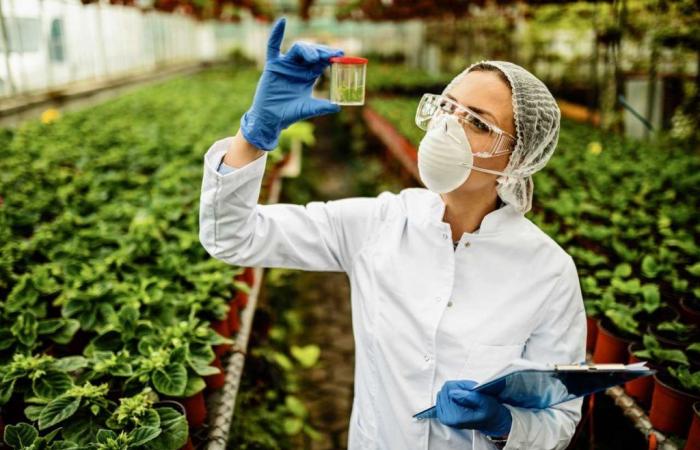Biotechnology has emerged as an essential catalyst for innovation and efficiency, from improving product quality to optimizing manufacturing processes. This scientific discipline offers advanced solutions to the sector’s contemporary challenges.
In this sense, biotechnology applied to food processing has changed the way food is produced, preserved and improved. This technology not only allows for the creation of more nutritious and long-lasting foods, but also offers more sustainable and efficient methods for its production.
Don’t stop reading: Innovative applications of biotechnology in food processing
Innovations in food ingredients with biotechnology
One of the most dynamic fields of food biotechnology is the development of new ingredients. Through genetic modification and fermentation, it is possible to create ingredients that not only improve the nutritional quality of foods, but also optimize their flavor and texture. .
Microorganisms and enzymes in food production
Microorganisms and enzymes are fundamental in various biotechnological processes, for example:
- The use of lactic acid bacteria in fermentation allows the production of dairy products such as yogurt and cheese with improved properties.
Additionally, enzymes such as lipase and amylase play crucial roles in the breakdown of fats and starches, improving the digestibility and texture of products.
Optimizing food safety
Biotechnology is also a powerful tool to guarantee food security, through advanced techniques such as:
- Detection of pathogens at the molecular level
- Genetic traceability
It is possible to identify and control contaminants more effectively.
Detection and control of pathogens
Biotechnology has allowed the development of rapid and accurate methods for the detection of pathogens in food. PCR (polymerase chain reaction) techniques allow the presence of bacteria, viruses and other microorganisms to be identified in a matter of hours, facilitating the implementation of timely corrective measures.
Sustainability and efficiency in production
In a world increasingly aware of environmental impact, biotechnology offers solutions to make food production more sustainable such as:
Reducing Food Waste
Biotechnology enables the development of methods to extend the shelf life of food, significantly reducing waste. For example, genetically modifying fruits and vegetables to increase their resistance to diseases and pests helps keep them fresher longer, reducing post-harvest losses.
Current trends in food biotechnology
The field of food biotechnology is constantly evolving, driven by the need to innovate and continually improve processes and products, some of the most relevant trends.
- Plant-based and lab-grown foods: These alternatives not only offer a more sustainable and ethical option, but they can also be designed to have an optimal nutritional profile.
- Lab-grown meat: Cultured meat, produced from animal cells without the need for breeding and slaughter, is one of the most promising innovations.
- Precision fermentation: Precision fermentation uses microorganisms designed to produce specific ingredients, such as proteins, enzymes and vitamins, this technology allows for more efficient and sustainable production of key ingredients for the food industry.
Challenges and opportunities
Despite advances, biotechnology in food processing faces significant challenges, such as regulation, consumer acceptance, and development costs. However, the opportunities to improve the efficiency and sustainability of food production are enormous.
Regulation and consumer acceptance
The regulatory framework for biotech products is complex and varies significantly between regions, and consumer acceptance remains a challenge, especially with regard to genetically modified foods. It is crucial that the industry works on transparency and education to overcome these barriers.
Examples in the food industry
- Impossible Foods and Beyond Meat: These companies have used biotechnology to create plant-based meat alternatives that mimic the taste and texture of real meat. Precision fermentation is a key technology used in their processes.
- Nestle: It has implemented enzyme fermentation to improve the production of its dairy products, this has allowed for greater efficiency and better quality of the final product.
Biotechnology is transforming food processing, offering innovative solutions to improve the quality, safety and sustainability of food products.
As technology advances, it is crucial that the food industry stays up to date with trends and developments to make the most of these innovations, collaboration and continued education will be key to overcoming challenges and maximizing opportunities in this dynamic field.






